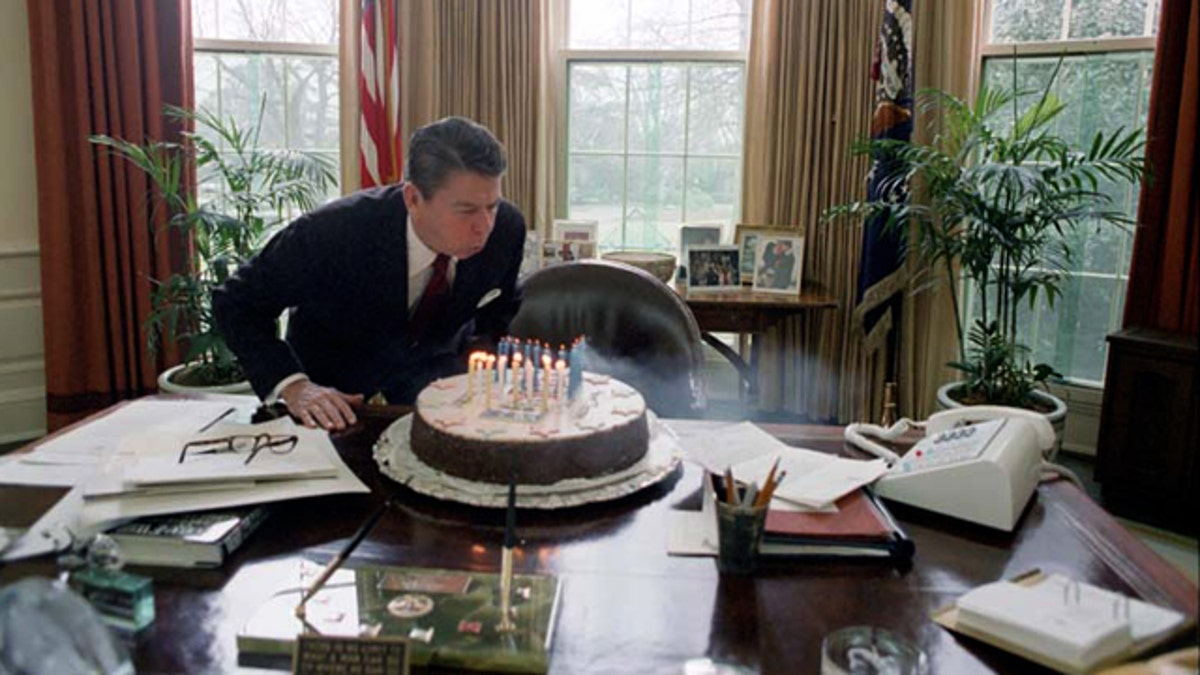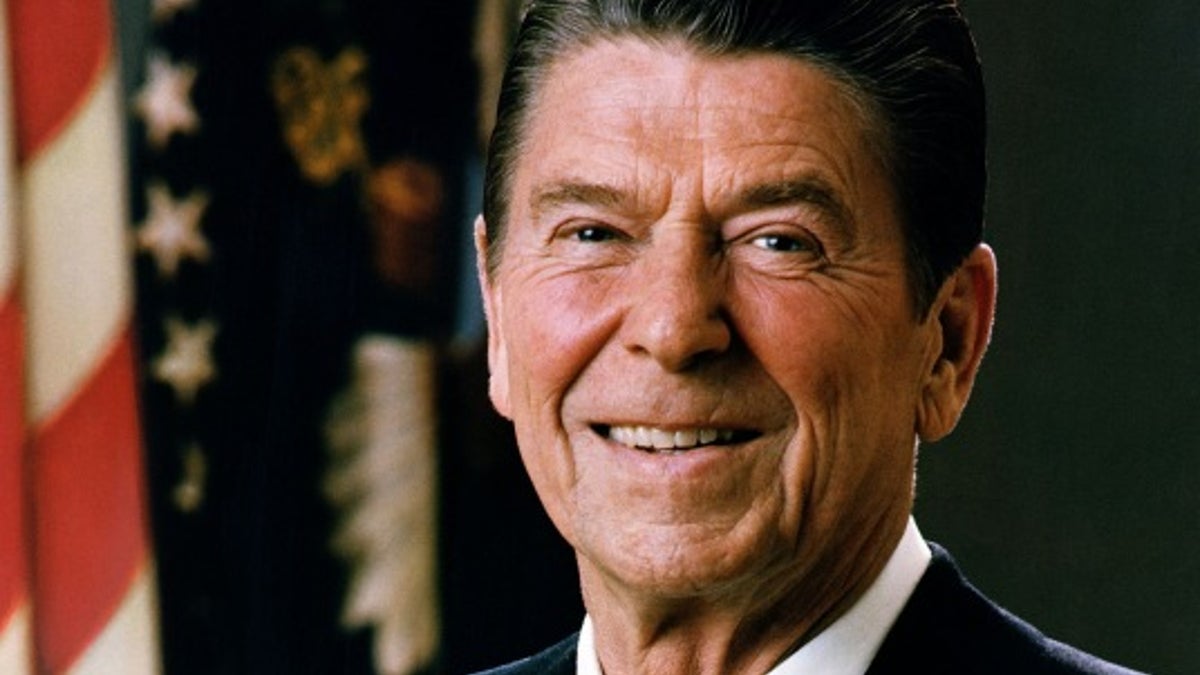
Feb. 5, 1982: President Reagan blows out candles on his birthday cake in the Oval Office.
"Freedom prospers when religion is vibrant, and the rule of law under God is acknowledged.” – Ronald Reagan, March 8, 1983
Ronald Wilson Reagan, born this week in 1911, was one of America’s most deeply read and thoughtful presidents, and one of its most spiritually grounded. Trained early in life by his evangelical Christian mother, he never forgot the lessons she taught him. And in the Oval Office he became a history-changing champion of religious liberty.
In fact, most Americans—even most conservatives—don’t realize how Ronald Reagan’s Christianity was a core part of his entire philosophy of government as well as something he lived personally.
Reagan viewed all of life, including public life, through a spiritual lens, lacing speeches with references to the practical implications of doctrines such as sin and the fall (part of his case for limited government, law and order, and confronting evil in regimes such as the Soviet Union), and the creation and dignity of every human being in image of God (part of his case for free enterprise and against abortion).
After renowned historian Douglas Brinkley spent six months meticulously examining and editing the private diaries Reagan kept while president, he noted: “In these writings Ronald Reagan’s true nature is revealed . . . Like his marriage to Nancy, his strong relationship with God was of paramount importance in Reagan’s life.” In these diaries, you find Reagan:
? Taking time to research evidence for the resurrection of Christ and drawing confidence from what he learned.
? Praying through the night for good weather for a visit from the prime minister of India, whom Reagan was trying to draw away from the influence of the Soviet Union (“Today was supposed to be a rainy one & I’ve been praying since last night.”) The rain held off until just after an important outdoor ceremony that got the meeting off to a good start.
Because Reagan the individual understood religious faith, Reagan the statesman understood its value to a free society.

“Without God,” he said, “there is a coarsening of the society. And without God, democracy will not and cannot long endure.” For this reason, Reagan rebutted attacks on religious values as attempts to “abrogate the original terms of American democracy.”
He supported both judicial and legislative action to restore prayer and other religious activity to public schools, including the 1984 Equal Access Act. He left a federal judiciary populated with Reagan judges who made key rulings in favor of religious freedom. His Justice Department accelerated the careers of countless champions of religious liberty and freedom.
As President, Reagan saw religious freedom as crucial to the moral stability necessary for a society to afford less government and enjoy more political and economic freedom.
“We establish no religion in this country, nor will we ever,” Reagan stated in 1984. “But those who believe must be free to speak of and act on their belief, to apply moral teaching to public questions.”
Today, powerful forces in culture and government are questioning the value of religious liberty. Yet the ideological heirs of Ronald Reagan are battling back in courts, state legislatures, and the U.S. Congress.
And somewhere in heaven, Ronald Reagan is cheering them all on.








































